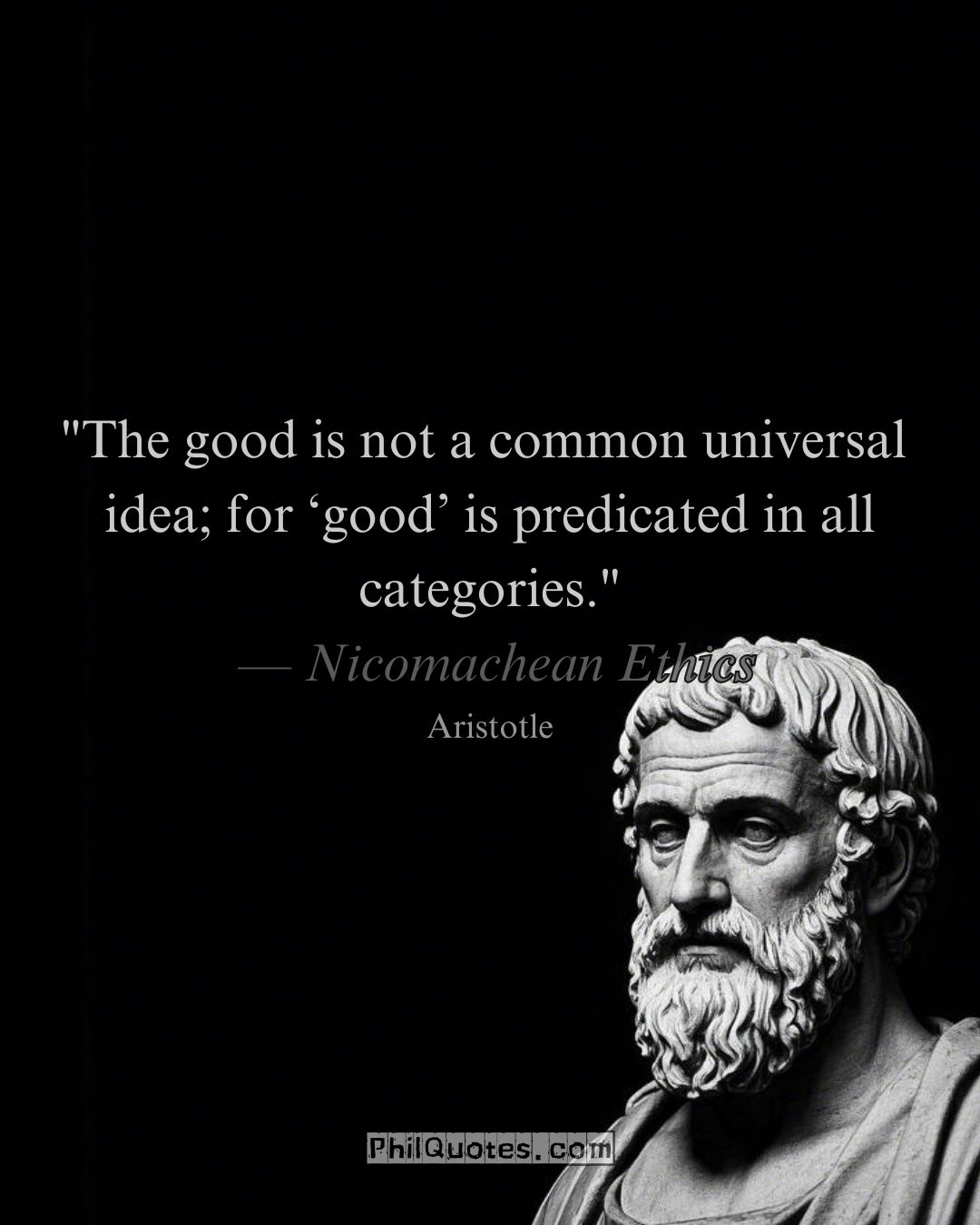
“The good is not a common universal idea; for ‘good’ is predicated in all categories.”
— Aristotle, Nicomachean Ethics, Book I, Chapter 6
Simple Explanation:
Aristotle rejects Plato’s theory of a single “universal Good” (e.g., Justice, Beauty). Instead, goodness varies across contexts — medical “good” is health, military “good” is victory, personal “good” is eudaimonia. Like a rainbow, the good splits into spectrum of purposes tied to each field’s function.
Real-World Connection:
① Education Reform →
You design a curriculum → math teachers aim for logical rigor (academic good) → drama teachers foster empathy (artistic good) → unified only by student flourishing (final good).
② Environmental Policy →
A city protects wetlands → ecologists value biodiversity (ecological good) → engineers prioritize flood control (practical good) → harmonized by sustainable survival (highest good).
③ The Hidden Symphony →
Aristotle’s “good” is a symphony of context — doctors don’t seek victory, soldiers don’t prescribe medicine, but all contribute to the human polis flourishing through their distinct excellence.